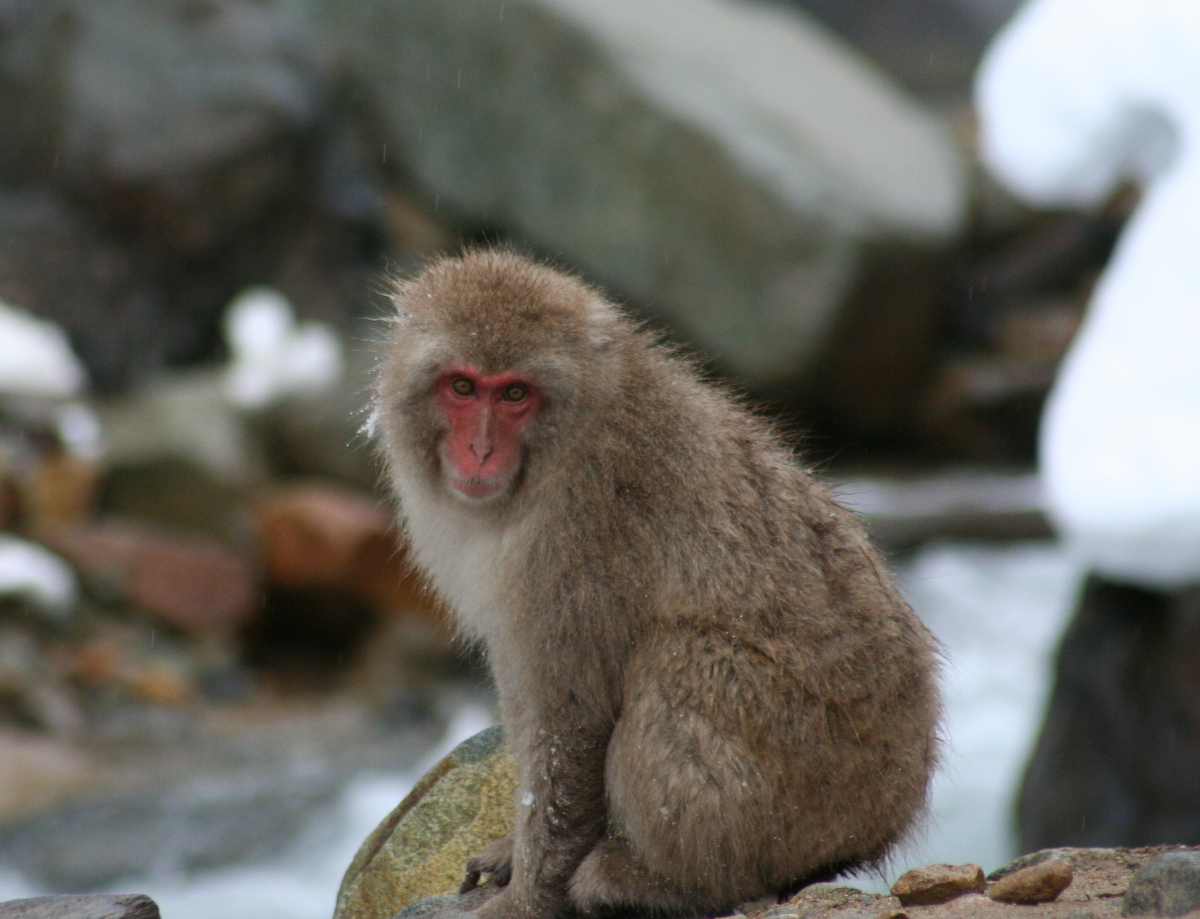
A few weeks ago news broke that Takagoyama Nature Zoo, located not far from Tokyo on Japan’s main island of Honshu had put to death 57 snow monkeys. They were killed by lethal injection. The reason for the grand assault on these Japanese macaques, and our distant cousins: Having sex.
The snow monkeys apparently had crossbred with wild rhesus macaques outside the zoo facility. The rhesus’s are native to India and China, and banned in Japan. The interbreeding polluted the gene pool, and made it necessary, at least according to the zoo officials, to cull the creatures. An official from Japan’s Office for Alien Species Management told the BBC that the killing was unavoidable.
Numerous animal rights activists expressed their outrage online. And I too was saddened. I happened to have just visited world-famous Jigokudani Monkey Park, where a large group of snow monkeys frolic in the snowy mountains not far from Nagano, where the 1998 Winter Olympics were held.
“It is buried in snow almost one third of the year,” states one website about Jigokudani. But, “even that kind of severe environment…is a paradise on earth for monkeys to live in.”
When I arrived on a Friday afternoon in mid-February there was indeed about three to four feet of snow on the ground. The monkeys spend the night sleeping along cliffs and in trees, for safety, then come down to the Yokoyu River each morning to feed off bits of grain that the park staff puts out for them and smile for the cameras. The park receives about 200,000 human visitors a year.
Most amazingly, at Jigokudani the monkeys bathe in the natural hot spring pools of the Yokoyu River. It is the only place in Japan where this activity is known to happen. How did the snow monkeys adopt such a practice? From watching the humans, of course.
“We can say that one day around 60 years ago young monkeys were found in an out-door hot spring bath” that is attached to an inn adjacent to the park, University of Tokyo snow monkey researcher Dr. Takafumi Ishida told me. “Nobody taught or pushed the monkeys to take a bath.”
Ishida explained to me that the monkeys have other human-like tendencies too. He doesn’t think the monkeys appreciate snow in the same way that humans do, but he did tell me an astonishing story. One time, at the beginning of the snow season, he spotted a baby snow monkey, looking “with big eyes” into the sky and “playing with the snowflakes.” He was “grabbing up,” said Ishida, “and trying to catch them.”
The monkeys indeed appear to be much more human, and humane, than we often give them credit for. This explains why the killing of 57 monkeys at the Takagoyama Nature Zoo was such a sad event. Although there was one bittersweet touch on the story. “A memorial service was later held for the monkeys at a Buddhist temple near the zoo,” reported one news article, “to ‘appease their souls.’”










